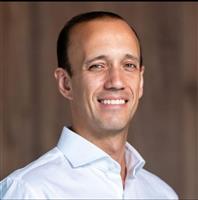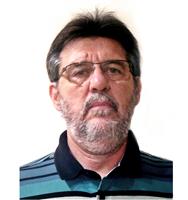SAF “Sustainable Aviation Fuel”- IN THE UNITED KINGDOM IT IS NOW MANDATORY TO USE AERONAUTICAL // NO REINO UNIDO AGORA JÁ É OBRIGATÓRIO O USO DO SAF AERONÁUTICO -
INGLES -
IN THE UNITED KINGDOM IT IS NOW MANDATORY TO USE AERONAUTICAL SAF “Sustainable Aviation Fuel”, a type of very low polluting aeronautical biodiesel and a substitute for highly polluting kerosene. This is excellent news for the cultivation of our Macaúba/boccia/coco-babão coconut tree from the Brazilian savannas more devastated/tired lands, because it is capable of producing 6 times more oil per hectare/year than soybeans, especially if in forestry development projects and even in degraded pasture areas, such as the project for an initial 100,000 hectares of Macaúba already being implemented in the Montes Claros region - MG by the Arab group Mubadala/Acelen and local rural producers. Macaúba can also be grown in old areas with other forest crops, until it is reconverted, many of them already named as “Green Deserts” by the BBC Brazil; please see in Portuguese at https://www.bbc.com/portuguese/articles/cxeev8l3mpko. As the UN 12 million hectares of land are lost each year and that's land in World where 20 million tonnes of grain could have been grown. In Brazil, in 2018, the total area with degraded pastures (with all types and stages of degradation) was also estimated by EMBRAPA at around a very high 160.0 million hectares, which occupy almost half of the country's rural establishments (I am finishing a new complete, proved and comparative bilingual article 12 pages about them)
In the United Kingdom, since January 2025 and setting a great global example, SAF - also obtained from soybean oil and even leftover cooking oil - has been mandatory and aims to REVOLUTIONIZE FLIGHTS, with the goal of zeroing out air carbon emissions by 2050. At the beginning, the Department for Transport made it mandatory for SAF to constitute at least 2% of all aviation fuel on flights that take off there, and increasing annually to 10% by 2030 and 22% by 2040. These are ambitious goals, but, according to the British Government, they are achievable, and should result in around 1.2 million tons of SAF being supplied annually to the airline industry. The UK will have enough fuel by 2030 to fly around the world 3,000 times.
“SAF is made from sustainable sources such as household waste or used cooking oil and produces on average 70% fewer carbon emissions than traditional fossil-based jet fuel. From this point forward, aviation will be a greener and more sustainable form of travel, representing a significant milestone for the UK SAF industry too. SAF is a critical component of the industry’s plan to achieve net zero emissions, accounting for almost 40% of the carbon reduction that will make net zero a reality by 2050.”
PORTUGUÊS -
NO REINO UNIDO AGORA JÁ É OBRIGATÓRIO O USO DO SAF AERONÁUTICO “Sustainable Aviation Fuel” espécie de biodiesel aeronáutico não poluente e substituto do querosene altamente poluidora. Trata-se de excelente notícia para o cultivo do nosso coqueiro Macaúba/bocaiuva/coco-babão dos cerrados e agrestes brasileiros, este capaz de produzir 6 vezes mais óleo por hectare/ano do que a soja, sobretudo em projetos de fomento florestal e mesmo em áreas de pastagens degradadas, como no projeto para 100 mil hectares iniciais de Macaúba já em implantação na região de Montes Claros - MG pelo grupo árabe Mubadala/Acelen mais produtores rurais locais. Também, a Macaúba poderá ser cultivada em áreas antigas com outros cultivos florestais, até a reconverter, = “Desertos verdes” como, recente, os nomeou a BBC – Leias em https://www.bbc.com/portuguese/articles/cxeev8l3mpko . Para a ONU cerca de 12 milhões de hectares de terra são perdidos a cada ano no Mundo e essa é uma terra onde 20 milhões de toneladas de grãos poderiam ter sido cultivadas. No Brasil, em 2018, a área total com pastagens degradadas (com todos os tipos e estágios de degradação) foi estimada pela EMBRAPA em cerca de elevadíssimos 160,0 milhões de hectares e que ocupam quase metade dos estabelecimentos rurais do País. Estou concluindo mais um artigo completo, bilingue e comparativo com 12 páginas acerca.
No Reino Unido, desde janeiro/2025 e dando um grande exemplo mundial, o SAF - também obtido com óleo de soja e até de sobras de óleo de cozinha - já tem uso obrigatório e pretende REVOLUCIONAR OS VOOS, cuja meta é zerar as emissões de carbono aéreos até 2050. Neste início, o Departamento de Transportes tornou obrigatório que o SAF se constitua em, pelo menos, 2% de todo o combustível de aviação em voos que por lá decolam, e crescendo, anualmente, para 10% até 2030 e 22% até 2040. São metas ambiciosas, mas, segundo o Governo Britânico, alcançáveis, e que deverão resultar em cerca de 1,2 milhão de toneladas de SAF a serem fornecidas anualmente à indústria aérea do Reino Unido até 2030, o suficiente para dar a volta ao mundo 3.000 vezes. O SAF é feito a partir de fontes sustentáveis, como resíduos domésticos ou óleo de cozinha usado, e produz em média 70% menos emissões de carbono do que o combustível de aviação tradicional à base de fósseis.
A partir deste momento, a aviação será uma forma de viagem mais verde e sustentável, representando um marco significativo para a indústria de SAF do Reino Unido. O SAF é um componente crítico no plano da indústria para alcançar emissões zero, representando quase 40% da redução de carbono que tornará as emissões zero uma realidade em 2050.”
Vide mais dados em: https://aeroin.net/entra-em-vigor-a-obrigacao-de-uso-de-2-de-combustivel-sustentavel-de-aviacao-em-voos-que-decolam-no-reino-unido/
FIM






